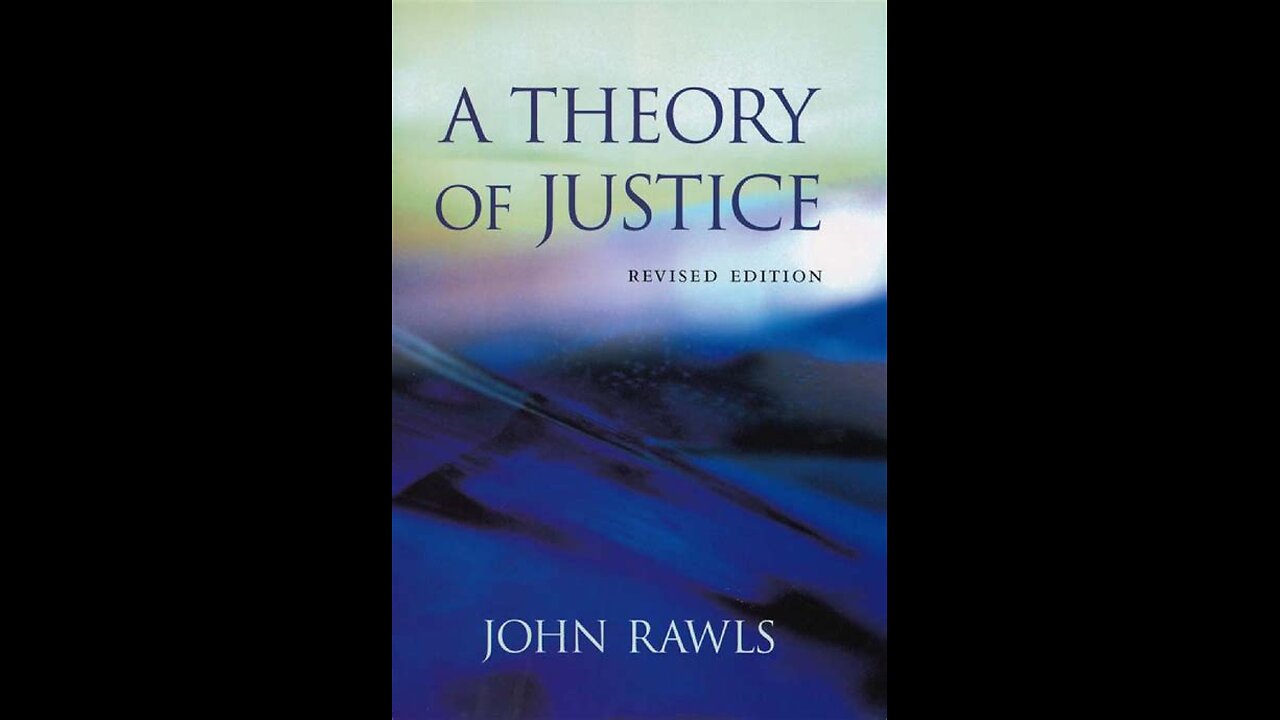Premium Only Content

A Theory of Justice by John Rawls | Summary
Buy Here: https://amzn.to/43uUWZI
""A Theory of Justice"" by John Rawls, published in 1971, is a seminal work in political philosophy that seeks to establish principles of justice for a liberal society. Rawls' theory aims to address fundamental questions about distributive justice, fairness, and the structure of society.
At the core of Rawls' theory is the concept of the original position, a hypothetical scenario in which individuals deliberate about the principles of justice from behind a ""veil of ignorance."" In this thought experiment, individuals are unaware of their own characteristics, such as their social status, wealth, talents, or personal beliefs. This veil of ignorance ensures that deliberations about justice are unbiased and impartial.
From this original position, Rawls argues that rational individuals would choose two principles of justice: the principle of equal basic liberties and the difference principle. The principle of equal basic liberties states that each person should have an equal right to the most extensive basic liberties compatible with similar liberties for others. The difference principle, on the other hand, permits social and economic inequalities only if they benefit the least advantaged members of society.
Rawls' theory emphasizes the importance of fairness and equal opportunity in the distribution of resources and opportunities within society. He argues against utilitarianism and other forms of consequentialist ethics, which prioritize overall social utility without sufficient regard for individual rights and liberties.
Throughout the book, Rawls engages with various objections and alternative theories of justice, refining his arguments and defending the plausibility of his principles. He also discusses the implications of his theory for issues such as economic inequality, welfare policies, and the role of government in ensuring a just society.
""A Theory of Justice"" has had a profound influence on political philosophy and public discourse, shaping debates about social justice, equality, and the role of government in modern liberal democracies. Rawls' emphasis on fairness, rational deliberation, and the protection of basic liberties continues to inform discussions about the foundations of a just society."
-
 LIVE
LIVE
Tim Pool
1 hour agoThe RETURN Of Riot Season, Summer of Love 2.0 Is COMING | The Culture War Podcast
2,810 watching -
 54:47
54:47
Steven Crowder
1 hour agoSharpening Spiritual Tools, Handling Infidelity & Manifesting Destiny | Tough Love with Guru Crowder
30.1K151 -
 LIVE
LIVE
pewculture
49 minutes agoThe Pew Culture Podcast #12 - Suicide Squad
301 watching -
 UPCOMING
UPCOMING
LFA TV
14 hours agoGUTTING THE GOVERNMENT! | LIVE FROM AMERICA 2.21.25 11AM
2.3K -
 LIVE
LIVE
Caleb Hammer
14 minutes agoIf Her Husband Sees This, It's Over. | Financial Audit
102 watching -
 LIVE
LIVE
Major League Fishing
1 day agoLIVE Tackle Warehouse Invitationals, Stop 1, Day 1
395 watching -
 LIVE
LIVE
Bannons War Room
3 days agoWarRoom Live
17,844 watching -
 LIVE
LIVE
Matt Kohrs
10 hours agoPAYDAY FRIDAY!!! || The MK Show
1,663 watching -
 6:46
6:46
Tactical Advisor
5 hours agoHow To Make Your Dream Gun Room/Mancave
3.12K3 -
 42:30
42:30
BonginoReport
4 hours agoThe FBI's Worst Nightmare CONFIRMED (Ep.145) - 02/21/2025
71.8K115